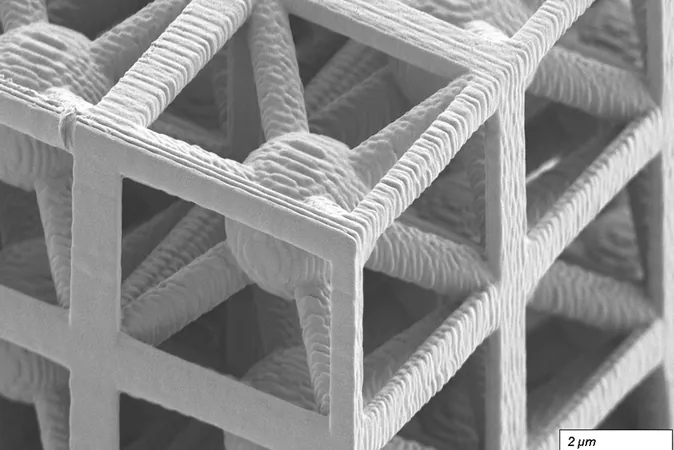
Game-Changer in Breast Cancer Treatment: The Rise of Antibody-Drug Conjugates!
2024-11-19
Author: Sarah
Introduction
Recent advancements have spotlighted antibody-drug conjugates (ADCs) as revolutionary tools in the fight against various types of breast cancer. Dr. Erika P. Hamilton, a leading expert from the Sarah Cannon Research Institute, is at the forefront of this emerging treatment paradigm.
Overview of Antibody-Drug Conjugates
These remarkable agents, including datopotamab deruxtecan (Dato-DXd), trastuzumab deruxtecan (Enhertu), and sacituzumab govitecan (Trodelvy), have demonstrated broad applicability across diverse breast cancer subgroups. Notably, trastuzumab deruxtecan and sacituzumab govitecan have secured approvals for use in both hormonally driven and triple-negative breast cancer—two of the most challenging forms of the disease.
Traditional Treatment Pathways
Traditionally, patients diagnosed with hormonally-driven breast cancer are treated with endocrine therapies, such as aromatase inhibitors combined with CDK4/6 inhibitors, particularly in the first-line setting. However, treatment pathways can vary significantly, especially when dealing with genetic mutations—like ESR1—that guide subsequent interventions. After exhausting endocrine therapy options, ADCs present a promising alternative, effectively substituting chemotherapy in many cases.
Versatility of ADCs
What sets these ADCs apart is their versatility, explained Dr. Hamilton. We often categorize breast cancer into three main types: HER2 positive, hormonally driven, and triple-negative. The remarkable capabilities of ADCs mean we can use agents like trastuzumab deruxtecan and sacituzumab govitecan across multiple classifications, broadening the treatment landscape.
Future Outlook
This innovative approach not only provides hope for improved outcomes but also offers a more targeted strategy, potentially diminishing side effects compared to conventional chemotherapy. Experts believe that as research continues to evolve, the full potential of antibody-drug conjugates in breast cancer management will become clearer, marking a pivotal shift in oncological therapies.
Conclusion
Stay tuned for future breakthroughs in treatment protocols, as this evolving field promises to change the narrative surrounding breast cancer care!

 Brasil (PT)
Brasil (PT)
 Canada (EN)
Canada (EN)
 Chile (ES)
Chile (ES)
 España (ES)
España (ES)
 France (FR)
France (FR)
 Hong Kong (EN)
Hong Kong (EN)
 Italia (IT)
Italia (IT)
 日本 (JA)
日本 (JA)
 Magyarország (HU)
Magyarország (HU)
 Norge (NO)
Norge (NO)
 Polska (PL)
Polska (PL)
 Schweiz (DE)
Schweiz (DE)
 Singapore (EN)
Singapore (EN)
 Sverige (SV)
Sverige (SV)
 Suomi (FI)
Suomi (FI)
 Türkiye (TR)
Türkiye (TR)